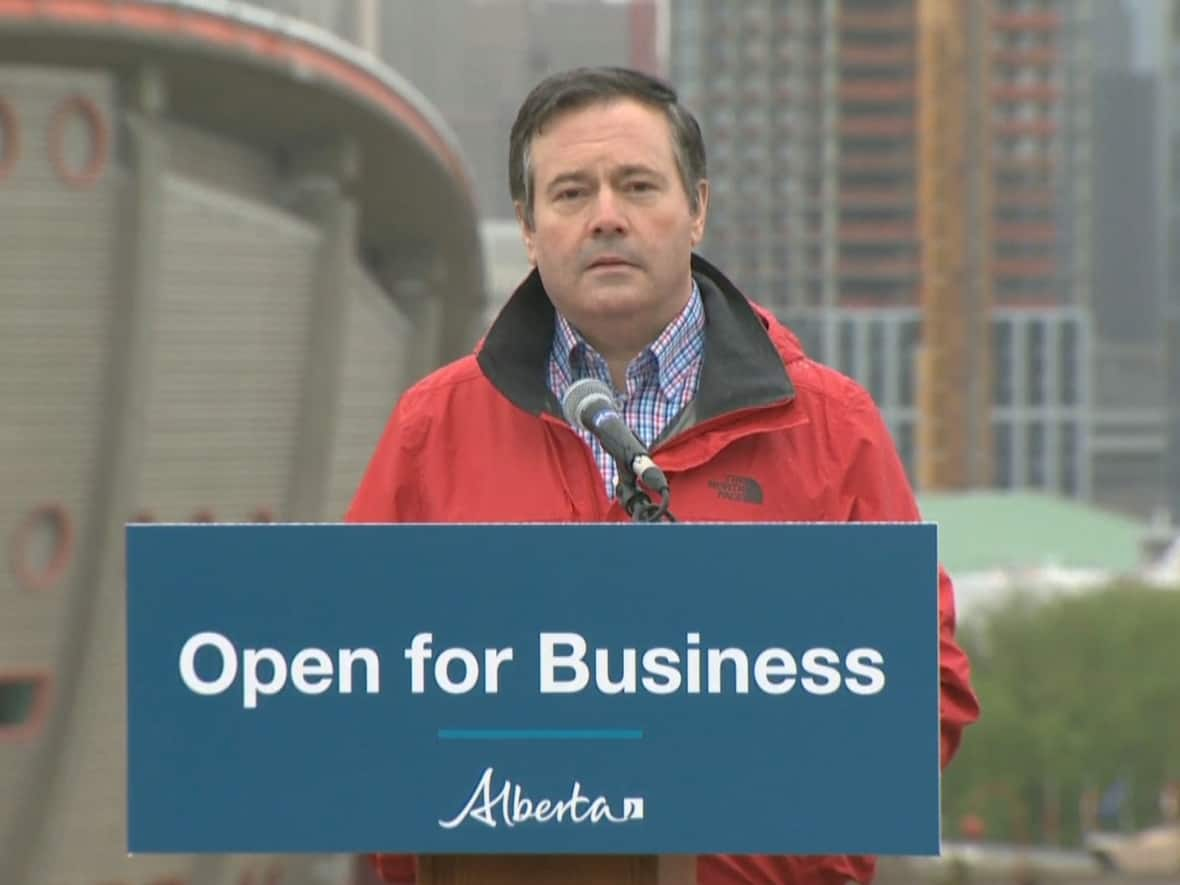Why some young Albertans are leaving the province

COVID-19 helped one family in Airdrie, Alta., decide it was time to return to Prince Edward Island after a decade of experiencing the Alberta Advantage.
"It's not necessarily a great environment here," Alicia Dowell told CBC's Calgary Eyeopener, referring to the culture and politics of the province. "I managed to find a job back at home that was more stable. We took the chance and are going to go for it."
Fresh research and surveys, along with cold, hard statistics, point to a trend of more people leaving the province than coming in. Since April 1 of last year — or the past five consecutive quarters — more than 15,000 people have left Alberta for good, according to Statistics Canada.
Out-migration of Albertans to other provinces has left Alberta with a net loss of more than 5,000 this past quarter alone.
Dowell, a librarian, is part of that trend. She has worked in public libraries and most recently in a public school in Airdrie, a growing community just north of Calgary.
"I had my hours cut to where it wasn't sustainable. I wasn't making any money [after] paying for child care," she said.
Jason Kenney's government has slashed millions of dollars from budgets across the education spectrum, which has led school boards to give pink slips to tens of thousands of workers.

'Me first' is putting family at risk
Rewind 10 years to when Dowell arrived in Alberta.
"It was a bit of a culture shock. It doesn't feel as community-based, it's more individualistic. You know, 'me first,'" she explained. "That was fine and workable, until we are in a pandemic and everyone else's 'me first' is putting me and my family potentially in danger."
Thousands of Albertans have taken to the streets to protest mask and vaccine requirements and protocols, with critics and medical experts pushing back, arguing it places others at increased risk of infection.
So just days ago, Dowell and her young family packed up the car and headed east. And she's not alone.
Noah Arney moved from Calgary to Kamloops, B.C., in June.
"The direction in Alberta isn't a good one," Arney said.
"I work in post-secondary [education]. The changes in the last two years have been quite damaging."
The province cut 5.4 per cent out of post-secondary budgets in the 2021 budget, leaving schools to replace $135 million in funding.
"About 20 per cent of my post-secondary friends have either left the province or the sector," Arney said. "I was thinking, I could stay here and try to support the students, with fewer and fewer [resources] every year, or I could go somewhere else where they aren't making such substantial cuts and laying so many people off."

Studying the movement of younger Canadians from one province to another has kept one Mount Royal University professor and about 50 students busy with an innovative research project over the past year.
David Finch, a marketing professor at Mount Royal in Calgary, cautions that we are not dealing with current, clear-cut data.
"The data are quite poor. It's dated and we are always playing catch-up. We call it managing through a rearview mirror, which is horrible," Finch said. "What we are seeing from the data now is validating the existing anecdotal evidence."
And what is that anecdotal evidence?
"Young people are leaving the province for a variety of reasons — some tied to employment, some tied to economics or education," Finch said.
27% of young Calgarians say they'll leave within 5 years
ATB Financial weighed in with a report published late last month titled Alberta Losing Residents to B.C.
"About 77,000 people came to Alberta from other provinces and territories between April 2020 and June 2021, while almost 93,000 left, for a net loss of 16,000 residents," wrote deputy ATB chief economist Rob Roach.
"The second quarter of 2021 saw a net outflow of 5,447, the largest loss since 2016."
What's behind the big change in a province known for the Alberta Advantage? A City of Calgary survey last year might offer some insights.
The 2020 Calgary Attitudes and Outlook Survey found that among those in the 18-24 age bracket, 27 per cent said they would likely move away from the province's largest city in about five years.
"In Alberta, there is a perception that there are a lack of diverse career pathways, leading people to look at other parts of Canada or beyond for opportunities in education or employment that may be closer aligned to their career objectives and social values," Finch said. "That's a significant factor."
In the 18-29 demographic that Finch studied, there's also a much greater distrust or discomfort about fossil fuel development, as it relates to the environment and climate change.
"This age group has a very strong, committed perspective to issues associated with the environment, climate and renewable energy. They very much believe that fossil fuels, in a study I saw, are their parents' fuel," he said.
Young people don't share 'Alberta' values
Meanwhile, P.E.I.-bound librarian Dowell says it's about social values, and a lot more.
It's about "being able to move where child care is much cheaper and I don't have to worry about being laid off at the whim of a government," she said. "We know of four other families that have gone recently and others that are expanding their job searches."
Calgary boasts the third-most expensive child care of major Canadian cities, a 2019 report concluded, while Charlottetown is one of the least expensive.
Newly minted Kamloops resident Arney is on the same page, and says remote work during the pandemic has also opened some doors.
"If Calgary isn't seen as a place to be, a place that has a bright future, people are going to choose other places in the country. I don't have to stay here," Arney said.
"If Alberta is cutting salaries and services, if people have the option of leaving, they might."

Finch says his unique background has helped him understand the challenge Alberta is now facing.
"I am a marketing professor. I look at this as a purchasing decision," he said.
"When people start evaluating options, they want a place that aligns to their values, where they feel they belong. We are starting to see some incongruence with younger people not feeling that the broader values of the province or their city are aligned with their long-term social values and goals.
"That's important, because that's an intangible that will contribute to intent. Social values frame not only their life, but their career prospects and decisions."
With files from the Calgary Eyeopener.


